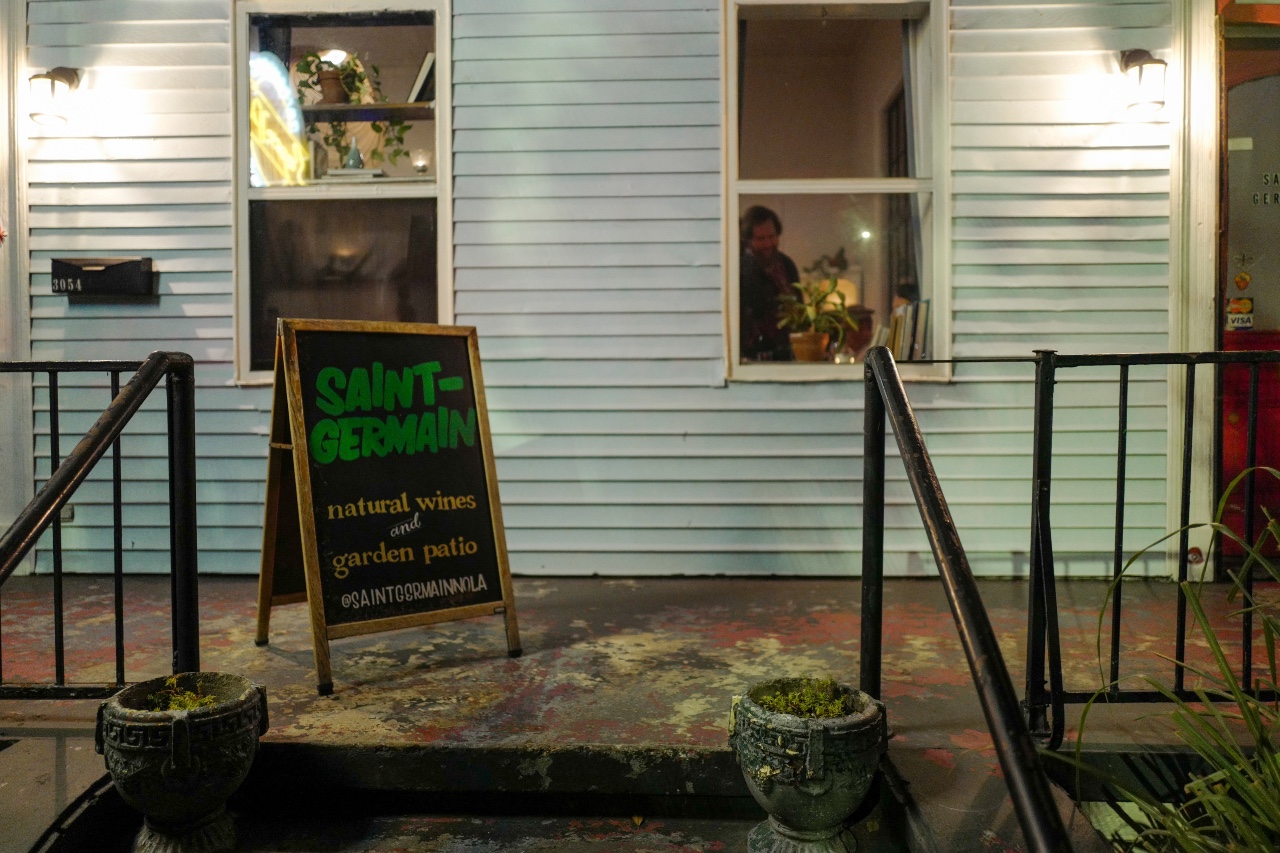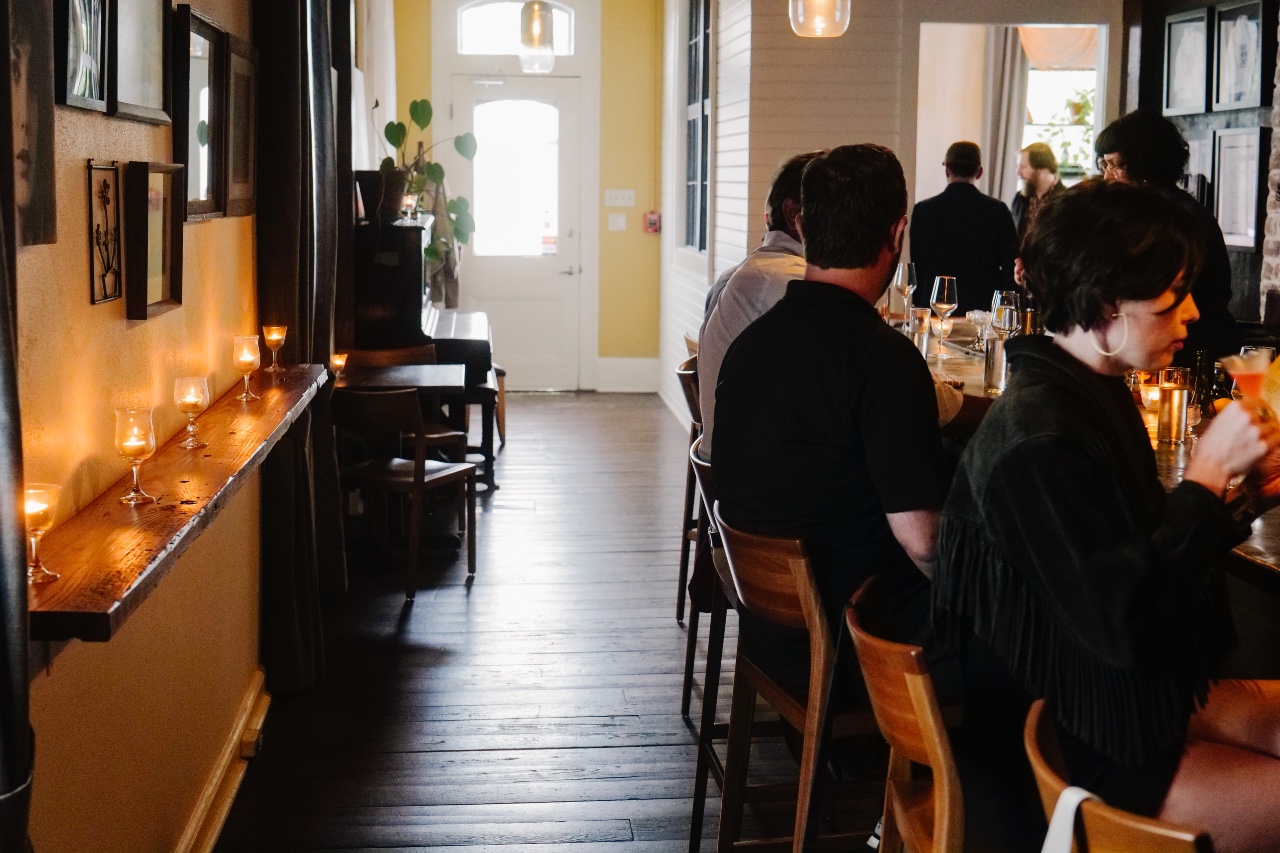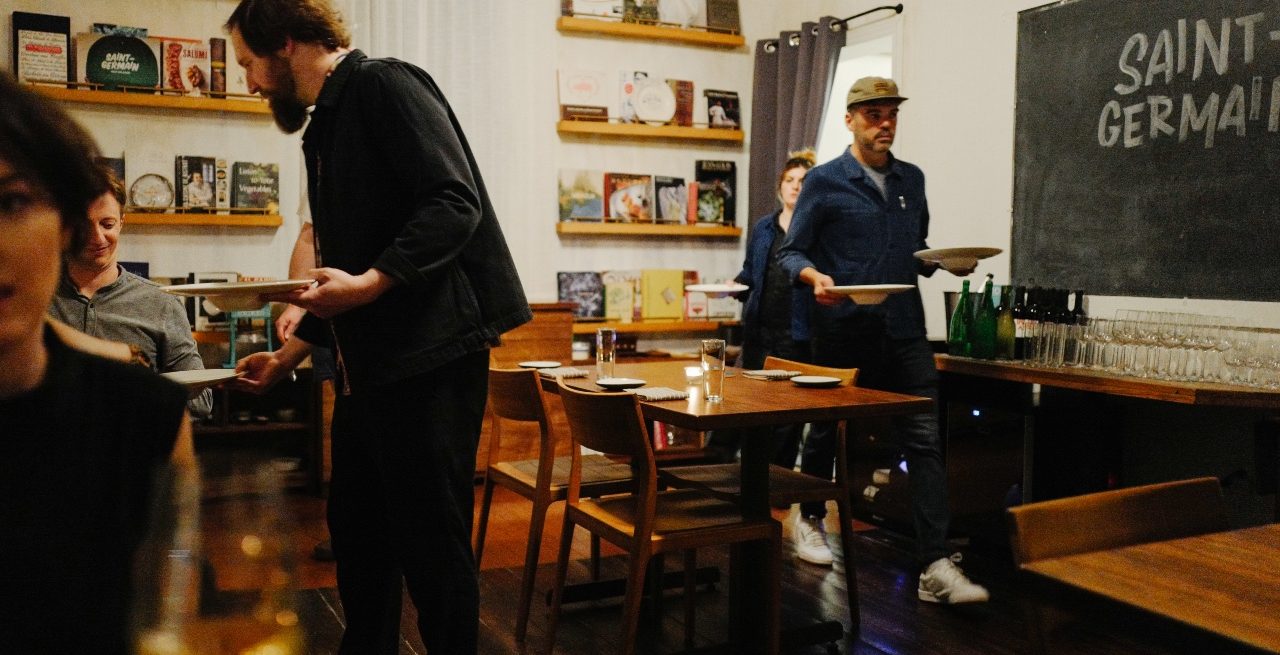Debt-Free Fine Dining
5 Min Read By MRM Staff
Blake Aguillard, Drew Delaughter, and Trey Smith started with $30,000 and no outside investors when they opened Saint-Germain in New Orleans' Bywater neighborhood in 2018. The team transfomed a dilapidated cottage themselves entirely by hand into an intimate 12-seat restaurant that has received numerous accolades.
They have been recognized by the New York Times, Wine Enthusiast, Southern Living, and were named Eater NOLA's 2019 "Restaurant of the Year." The co-owners were listed among Food and Wine’s “Best New Chefs” (2021) and they have garnered multiple James Beard Foundation Award nominations for "Best Chef: South."
Along the journey, they utilized a debt-free model to survive the pandemic and do not even use credit cards to run day-to-day operations. The restaurant's limited seat count allows them to purchase smaller amounts of quality ingredients such as Japanese Wagyu and white truffles, as well as harder-to-source wild game like pheasant, while their DIY approach helps them execute on techniques like ember cooking on a custom-welded barrel on their back patio that would otherwise be prohibitively expensive and specialized.
Aguillard, Delaughter, and Smith are also passionate about lifting up the next generation of chefs and have mentored successful chefs including Serigne Mbaye (Dakar) and Tom Branighan (MaMou) as they set out to open their own restaurants.
To learn more about operations at Saint-Germain, Modern Restaurant Management (MRM) magazine reached out to Smith.
Do you feel having a background in economics better prepared you for opening a restaurant?
It did in multiple ways. For one, I was allowed access to information in my previous jobs tha I might have had a harder time getting access to without an economics degree and law school. Previous employers were willing to get me involved in that side of the business because they had reason to believe it could add value to their company. They certainly weren't asking my advice about their business, but they knew if they got me involved, I could learn it and have valuable input down the road. Second, as with anything else, you tend to get better advice from mentors when you can meet them halfway with a strong base of knowledge. They may not have time to teach you from the ground up but are encouraged to give more advanced information when they can start at an accelerated level. I've found that to be the case with our lawyers, as well. If someone asks a writer how to write a book, it may be discouraging to begin answering the question, but if the aspiring writer already has half a novel, it's easier to read what they have and help them go from there.

How do you budget and plan for emergencies?
There's no magic number for this. You have to decide what size nest egg you need to feel comfortable weathering most setbacks, and you have to balance that priority with the priority of paying yourself as well as the risk of said setbacks in the future. You also need to balance that with the consistency of your revenues. If your revenues are very consistent,you're able to take on a little more risk by having smaller savings at moments.
Why not use a credit card?—You could always pay it off and get rewards.
Logically, a credit card is a good idea. If you pay it off on time, the rewards are great tohave. That being said, credit card companies are as massive as they are because so many people and businesses fall behind in this practice. No one expected a global pandemic, and how many businesses were left with a sudden stoppage of revenues and debt that they could not pay back as a result? All debt is a risk in some way. Zero debt is zero risk. Your best business practices will likely fall somewhere in the middle. You need to figure out what balance works best for you.
What are the advantages of adhering to a debt-free model and how did that help you during the pandemic?
Debt equals risk and risk equals stress. Debt is a valuable tool in business. There's no doubt about that, but at what cost? Does the risk affect you on a personal level? Does it ultimately force you to make decisions you wish you didn't have to? For my partners and me, no debt meant we could sleep soundly at night. When the pandemic hit, we were worried just like everyone else, but going out of business was much less of a worry for us.
How does having a “bootstrap mentality” help when starting and operating the restaurant?
The more you do on your own, the less you have to pay someone else to do it. You can't do everything yourself, but at least for us, we could do more than we thought we could. (We didn't have much money when we opened so we also didn't have a choice.) In retrospect, though, if we had more money at that time, we likely would have ended up in the same place—just with more money in other companies' pockets than our own.

In what ways does having a limited seat count offer advantages when containing costs?
Your quality of product, quality of life, risk, and profits all work on a sliding scale where they each affect one another. Few things affect this scale more than cover count. We sought a model that we could influence tremendously with our labor. We needed fewer people to provide a high-quality product. We had to work harder personally, but we were able to have a smooth-running restaurant pretty quickly. We were able to train people more gradually, without putting the burden of the restaurant's overall quality on their shoulders. A larger restaurant with a larger staff requires a lot of people to be at full strength immediately. Ultimately, that means more money and a machine that may one day be able to run without the owners physically being there. As a general rule, small restaurants are easier in the short term, and larger restaurants are easier in the long run. I know restaurateurs who swear by a larger model. Most successful restaurant groups are anchored by larger restaurants. We found that our model fits because it allows us to lead our desired lifestyle.
Why do you feel it’s important to mentor other chefs and model financial stability to them?
Greater mentorship to aspiring restaurant owners will result in more diverse restaurants in the future. Arguably, the most important part about our business is that it is ours. It's 100% our vision and not influenced by banks or people we are indebted to. While we strive to do right by our customers, team, and investors, no single person or company can force us to steer away from our core values. Our model could potentially be perfect for a future trailblazer, someone who was maybe told that their cuisine didn't have a market or that their concept was too specialized or too fancy. We want to one day dine at those restaurants. We will do anything we can to ensure those restaurants become a reality.
What is some advice on best financial practices you can offer other restaurateurs?
The top priority is to make sure you're bringing in more money than you are spending. The second priority is paying off debt, and the third is savings. Move forward in that order to the best of your ability. Pay yourself what you have to in order to survive, but ultimately work towards having a stable business that pays you and your team as much as possible without risking your company's survival.

